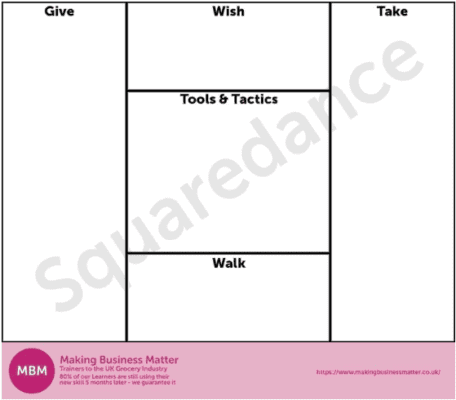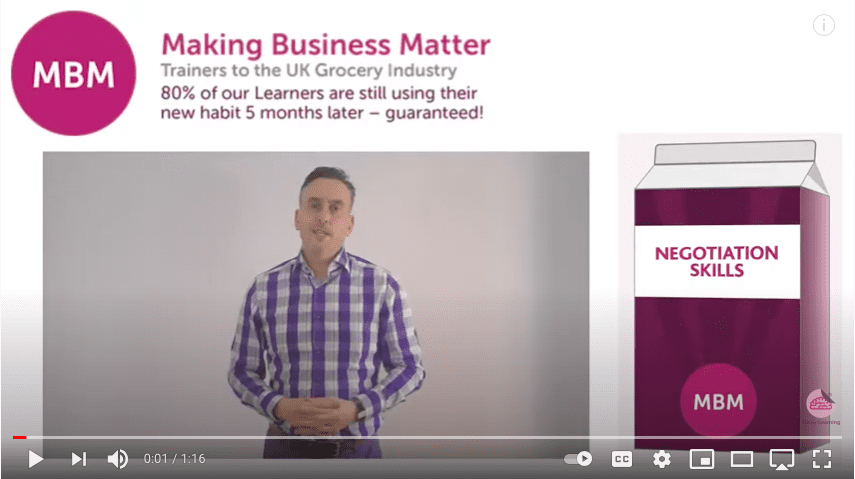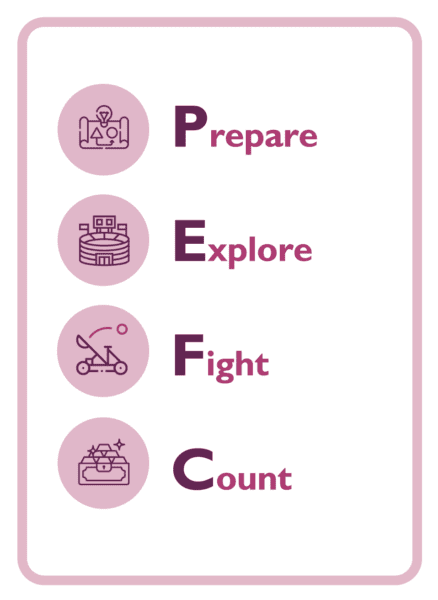Anyone Can Negotiate
Let’s begin how to improve your ability to negotiate with a misconception – great negotiators are tough. Banging their fists on the table and shouting. Effective negotiators can do this, but it is not their only tool in their toolbox, and I’d go as far as to say it is one of the least effective tools. Our 7 tools are for the beginner negotiator through to the seasoned negotiator to improve negotiation skills.
Tool #1: Improve Negotiation Skills: Use the Squaredance Template to Prepare for Your Negotiation
Imagine a surgeon that didn’t talk with the patient about the upcoming surgery. Didn’t scrub up, the theatre wasn’t prepared. Instead, she just asked you to join her in the OR – ‘Lay down somewhere here, and let’s have a look about’ (!). Like anything worth doing well, preparation is the key.
The challenge for most people that are about to negotiate is that they don’t know-how. Their preparation is to tell themself to be strong and act tough. Effective preparation will help you so much more.
We call it the ‘Squaredance’, and it has helped many a Learner over the last 20 years of teaching negotiation skills.
It is simply a 1-page template that enables you to plan and think through the various scenarios of your upcoming negotiation so that you can be more prepared, because with preparation comes confidence, and with confidence comes wins.
Read the Squreadance article to understand the answer to ‘How can I improve my negotiation skills at work?‘.

Tool #2: Role Play Your Upcoming Negotiation
Yes, we know as trainers that no one likes role-playing. Unfortunately, it is a very powerful tool for learning. Better ‘to sweat in training than bleed in battle’. Here are five steps to role-playing because it works:
- Choose a colleague. Someone that can be the person you will be negotiating against. Or someone that knows your opponent well. The best person is someone that can act in the way this person does. Not someone that can act as a tough negotiator, but someone that can ‘bowl the curveballs’ that your opponent will and the way they will.
- Share the background of the negotiation with your chosen colleague. Including emails, conversations and all other communication. They need to be prepared.
- Agree on a time for the role-play negotiation. The meeting cannot blur the lines between the negotiation and prepare or discussing the negotiation. The meeting is at a time and a place and that is when the mock negotiation begins and ends. As soon as you walk into that room, your colleague is your opponent, and until the time you agree, ends.
- Give yourselves at least 30-minutes after the agreed time to negotiate to discuss your performance. Split the feedback from each of you, about your performance, into:
- Examples of things you did well.
- Things you could have done better, with examples.
- Some things that were surprising.
- Identify the top 3 things that you need to prepare better and give yourself simple action points to ‘close them out’. For example, if you reached a deadlock, the action is to have more gives and wishes in your preparation (see the squaredance article above for what these are).

Tool #3: Improve Negotiation Skills: Listen for the Small Words that Give Away Our Position
- ‘Hello. I am calling because I saw your advertisement on gumtree and I’d like to buy your lawnmower, please’.
- ‘Great, thank you for calling.’
- ‘You advertised it for £85. How much would you accept, please?’.
- ‘I’ll accept around £70’.
The keyword that gave away the seller’s position was ”around’. They will accept £70, but they’ll probably accept less than that. Maybe even £60. If the seller had said instead, ‘I will let you buy it for £70’, then their position is clearer. The price is £70. They are not subconsciously sharing a signal that they will accept less. The point here is not whether they will or will not accept less than £70. The point is about choosing whether we want to share that information.
Listen for the small words that give away their position. Negotiation skills examples of words, like:
- ‘I could accept about £2,250′.
- ‘My final offer is around £17.50′.
- ‘I would not be able to accept much less than £625′.
Plus, be careful to not subconsciously share your position by saying small words.

Tool #4: Slow Your Negotiation Down
Tom Hardy plays an MMA fighter in the film Warrior and fights his brother played by Joel Edgerton. There is a fabulous scene where Joel is being trained by his coach to fight. He is on the floor and being held in a painful submission. His coach speaks to him from outside the ring, ‘Just breathe. Everything is ok. Just breathe’. Often, in life, we just ned to slow down the tempo. Negotiations are similar. So many negotiations we see on TV it’s all about speaking fast and he whos speaks first and responds quickest wins. This is simply not true.
When you are in the thick of the negotiation, it is good practice to slow down the negotiation. You don’t have to think on your feet. You can take control – not be speaking quicker – but by changing the tempo. Here are 3 ways to do that:
- ‘I am struggling to keep up with the complexity of this negotiation – would you mind if I just summarise where I am so far because I don’t want to agree to something that I later need to change. Is that ok?’.
- ‘May we adjourn for 10-minutes so that we can confer, please?’.
- ‘Please could you summarise where you are up to because we are both moving at pace and I don’t want either of us to make a mistake’.








